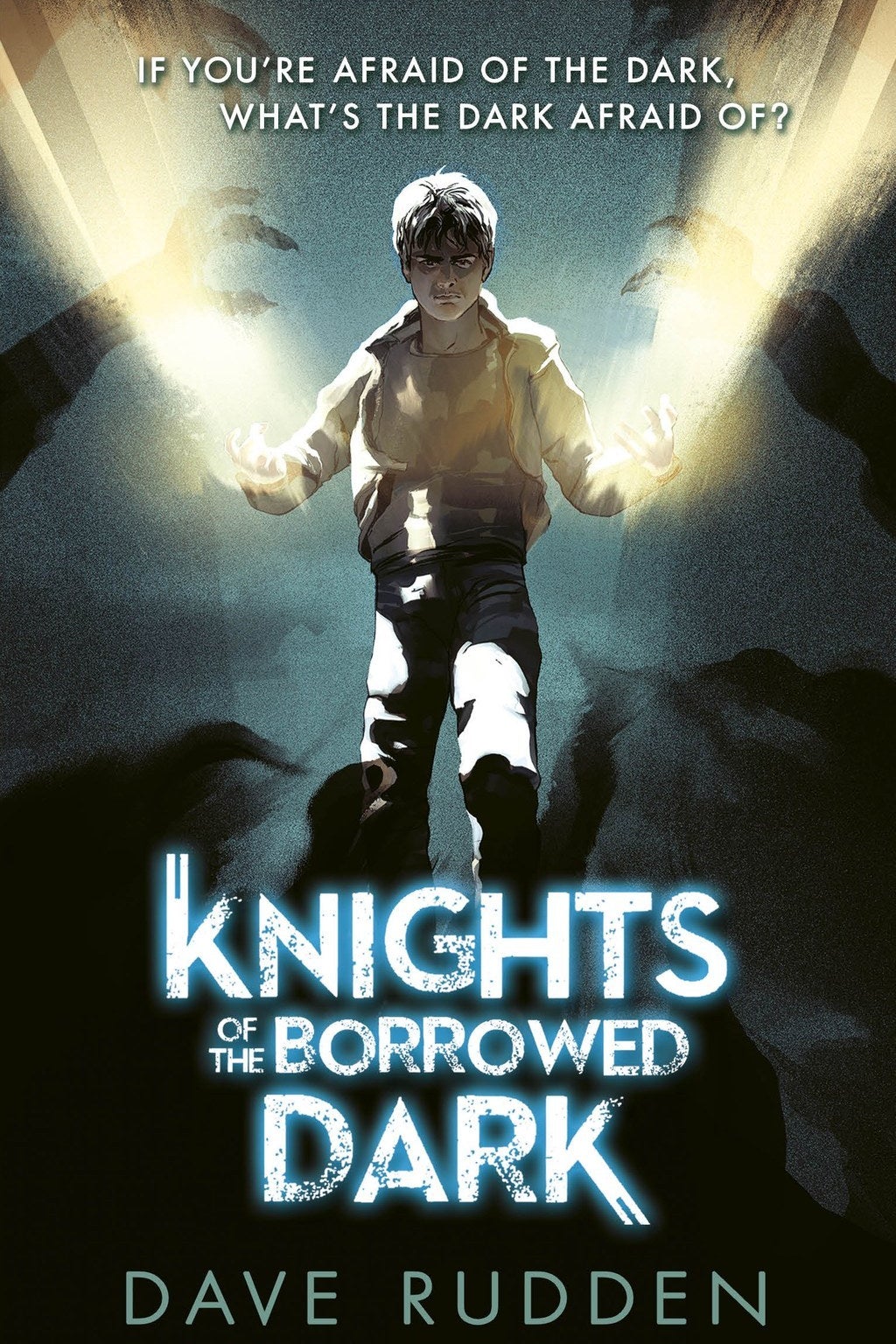

If you haven’t heard of Dave Rudden yet, don’t worry – you will. The Irish writer’s debut book, Knights of the Borrowed Dark, hit international shelves on 11 April this year. It’s an action-packed fantasy adventure that will have fans of JK Rowling, Neil Gaiman, and Terry Pratchett clamouring for more.
The book follows orphan Denizen Hardwick’s initiation into a secret society of warriors with magical abilities (the titular Knights of the Borrowed Dark), who fight tirelessly to protect humanity against a terrifying underworld of shadow creatures.
If it sounds like something you’ve read before, that’s because it’s in part a loving homage to the fantasy genre. But don’t judge it by its back cover; it’s just as original as it is formulaic. Rudden, a former fan fiction writer, has a deep knowledge of the genre and plays expertly to subvert tropes throughout the book, so fantasy fans expect familiarity with a twist.
Catching up with BuzzFeed at the beginning of his UK tour, he shares his thoughts on going from bullied schoolkid to Puffin’s biggest debut author of 2016, dishing out advice on everything from mental health to writing a first draft to getting published. Here’s what he wants young writers and readers to know:
1. Growing up different is hard, but that’s not your fault.
Rudden wrote at length for The Guardian earlier this week on the importance of encouraging young boys to explore their feelings and the dangers of toxic masculinity. "I was bullied as a teenager," he wrote. "I don't say this with any shame, because it's been 10 years and I've made my peace with it, and also because 43% of the UK's young people are going through it right now. It's your story as well, or a story you see out of the corner of your eye every lunch break. And for most of us, for a long time, it will be a story of silence."
"I was bullied because they were bullies."
He tells BuzzFeed his experience as a sensitive kid in a hostile environment was difficult, but that at the end of the day, he couldn't blame himself for the unfair treatment he received in school. "I've always been a sensitive person," he says. "I overthink things, I get invested, I care a lot. I grew up in a really small rural village [where] being different isn't necessarily rewarded. It was very hard. I was shy, I was ginger, I was very bookish, I was overweight, I had glasses... But none of these things are really reasons to be bullied. I was bullied because they were bullies."
2. But there’s a larger conversation that needs to be had about where bullying comes from.
The villains at the centre of Knights of the Borrowed Dark are a mysterious and nightmarish trio Rudden calls "the Clockwork Three". They're manipulative, inhuman figures who thrive on chaos and pain, with no agenda other than making life harder for anyone and everyone else. It's not a far stretch to liken their characteristics to the bullying that Rudden endured as a child. In fact, their cruelty is directly inspired by his own experience.
"The Clockwork Three are the three aspects of a bully," Rudden says, ticking off each member of the Three: "The Man in the Waistcoat is the joke you can’t out-logic, that cruel comment that doesn’t even really make sense, but everyone's sort of on board with anyway. Petty, personal cruelty. The Woman in White is brute force. And then there's [the Opening Boy]. At the centre of it all is a hurt child. Because that’s all a bully is.
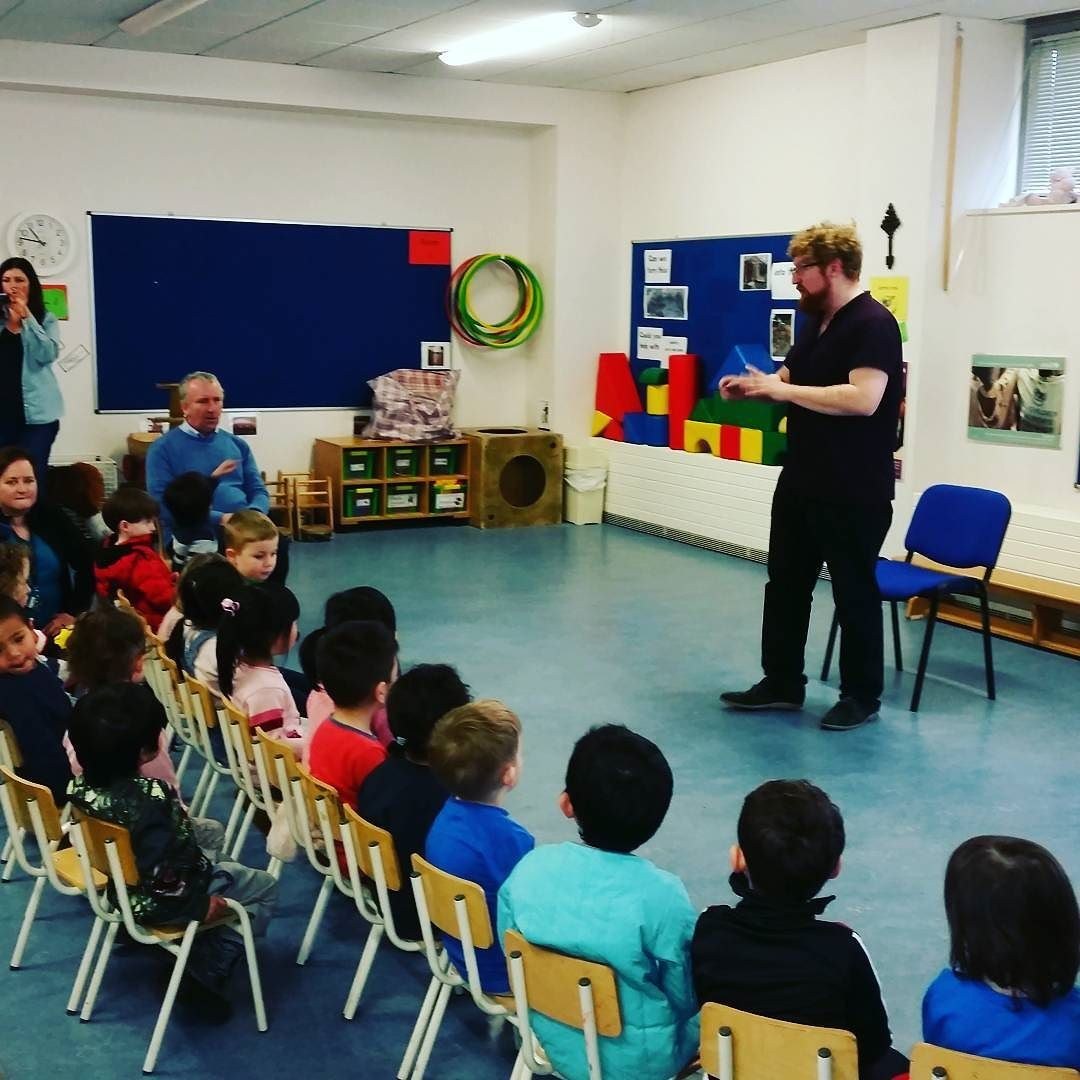
"I don’t want to demonise a kid who picks on other kids, because there’s a situation there as well. And in the same way the other two [members of the Clockwork Three] keep him around just to hurt him, I keep the Opening Boy around to remind me that bullied kids are just kids as well. To remind me that they deserve exactly as much attention as a kid being bullied, because there’s almost a worse problem there too.
"It’s so easy for someone who’s hurt to hurt other people in turn. That’s a very natural progression, and its hard to break out of."
3. And just because you don't fit in somewhere doesn't mean you won't fit in anywhere.
Going to college nearby but just far enough away for it to seem new was a revelation for Rudden. It was the first step on a long road of discovery that helped him find himself as a writer, performer, and person. "It was amazing to get away from home and go to a place where no one had any preconceived notions of me," he says. "It was really lovely to meet people who took me for me and didn’t mind that I was shy and I was quiet, or that the only time I lit up was when I talked about books or film that I loved." (He's a diehard Terry Pratchett, Neil Gaiman, Star Wars, and Buffy fan, in case you're wondering just how to light him up.)
"I became a social albatross."
"I bloomed," he says of those years in college. "I became, well, not exactly a social butterfly... but a social albatross." He laughs. "Awkward and ungainly but everyone’s favourite. And it was brilliant."
4. You deserve to be confident about who you are.
Perhaps the biggest factor in bringing him out of his shell in college was his participation in the drama society. What drew him to drama? "They had free doughnuts," he jokes. "It was a really formative experience where [I realised] you can act a certain way to provoke a certain response from people. I was like, 'Oh! Then I’ll just be confident.'
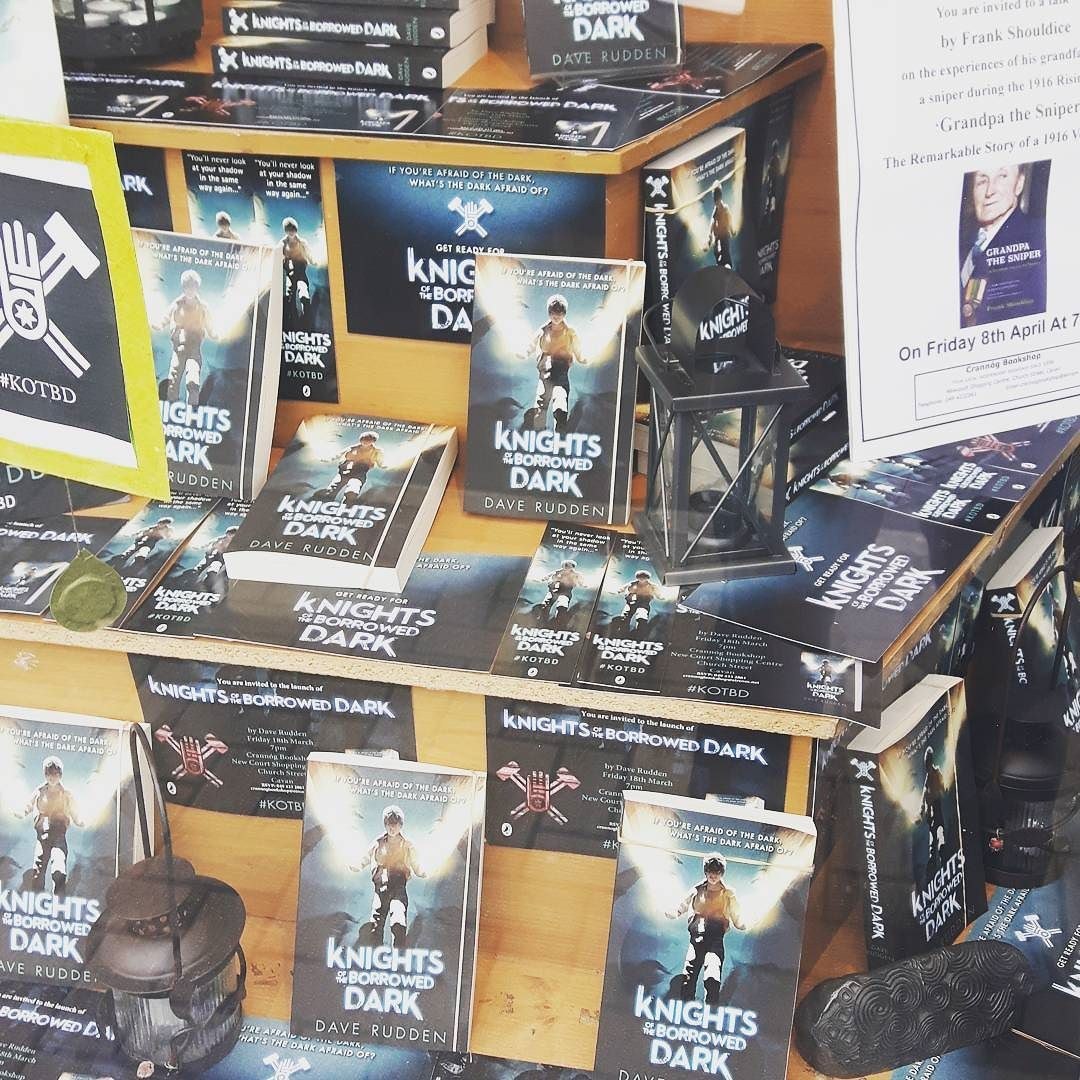
"I’d spent so much of secondary school trying to find the magical combination that would, like, make people stop picking on me. I tried not caring about the things I cared about, I tried just not talking in case they ignored me, and none of it worked. Because it wasn’t about me. It was about them. But once I got to college, I realised I could just make myself confident. And it wasn’t not me... I put up a hologram, basically."
It's a sentiment echoed throughout the first instalment of the Knights of the Borrowed Dark series. The majority of characters put up smoke and mirrors (metaphorical and not magical in this case) to distract from their own weaknesses and accentuate their strengths and thus earn respect and admiration from their peers.
5. But it’s important to be honest with yourself and others when you’re struggling.
Asserting confidence, even when you're naturally self-conscious, is part of finding your strength, Rudden suggests. But it's not a catch-all, and it's important, particularly for young people, to be allowed to feel your whole range of emotions. "Behind the hologram," he tells BuzzFeed, "I was still incredibly sensitive. Any time I had an argument with somebody, or even if somebody even mildly disapproved of what I was doing, I had panic attacks. I thought, 'If things go wrong, if I lose these people I found, I’m just going to back to the way I was in school.'"
"I thought, 'I can't be depressed ... other people have it so much worse.'"
Depression plagued him during college. "It got extremely bad," he says. "At the time I thought I had to do everything myself. That there was no help for me. I was so used to making sure other people were OK and happy. I constantly rated my experience against other people and I thought, 'I can’t be depressed,' or 'I can’t be feeling bad because other people have it so much worse.'
"But eventually things got bad enough that I was like, I need to do something."
The first thing he did was talk about his mental health struggles with his parents. "They were magical," he says. "They were actually just really great and I wish I had trusted them before I did. They got me help. I went to counselling and that was really helpful."
6. Finding an outlet is essential.
"The other thing [that happened in that time] was that I discovered writing," Rudden says. Whereas his admiration of great fantasy writers, Terry Pratchett in particular, had once intimidated him out of writing, he started to realise that the published writing he loved could serve as a jumping-off point. Enter fan fiction.
"I joined a Warhammer 40,000 fan fiction forum," he says. And it was there that he realised writing could be done for the love of it, for better or for worse. "These people were writers but they weren’t published, OBE-possessing people... they were brand new, and they were better than me, but not an insurmountable amount."
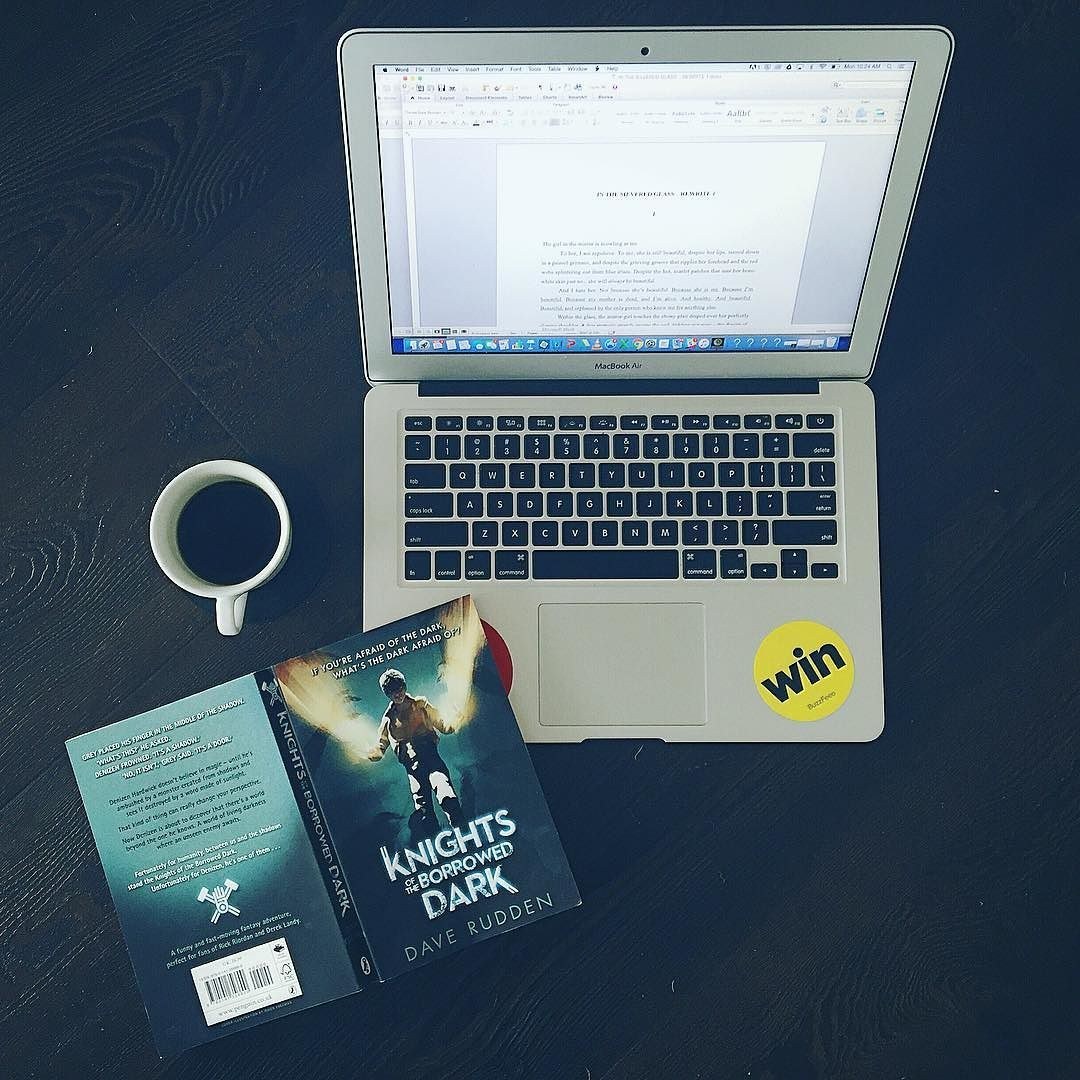
The more time he spent reading and offering feedback on the forum, the more his confidence and desire to write began to grow... and the more he realised what a valuable outlet writing could prove to be for him.
"I had this knack for catastrophising stuff. Something would happen, and I would play out all the possible consequences and I would always fixate on the negative ones, to prepare myself the worst. I thought it was inevitable. Then I started writing, and I realised: 'Oh. That’s plotting. You’re plotting things. So maybe it’s better if you plot things with lightsabers instead of imagining the worst possible consequences to whatever’s going on with you.'
"And then when I put it down on paper, it stayed there. And I had art at the end of it. It really, really, really helped."
7. Know how to characterise your failures.
"I was 80,000 words into a fan fiction when my laptop died," says Rudden, recalling how he made the leap from fan forums to his six-figure book deal with Puffin. "So I took it as a sign. I do a lot of writing classes now, and there's something I always tell the people that I'm teaching: [When things go wrong], take it as a chance to look at how you characterise failure; 'Is my failure a sign that I shouldn’t do anything ever, or is it an impetus to move forward?'"
"Is my failure a sign I shouldn't do anything ever, or is it an impetus to move forward?"
Rudden chose to turn the cringeworthy loss into a motivation to write, for the first time ever, completely original material. "I had moderate success," he says of his days spent dabbling in short stories in his early twenties. He published a few works, won a few awards and was shortlisted for a few prizes. "And it was going fine," he says, his tone lackadaisical. "I was writing when the mood struck, and I was writing when it was easy and really lovely." But it wasn't quite the career he'd imagined.
"It got to the point where, because I had started off in fan fiction, this edit-heavy and positive atmosphere, I knew I wanted to write for an audience. And I wanted to test myself and see whether I had the chops to go professional. So I applied for the creative writing MA at University College Dublin and I thought, 'If I don’t get in, it's an indication that maybe this is just a hobby and I’m not cut out for it whole-scale. And that's OK.'"
But he did get in. "And for me, personally, the MA completely keyed into what I was lacking: discipline. It made me branch out; I wrote a lot of poetry I wrote a lot of literary fiction, and really got into the idea of close-editing my work." And maybe most importantly, the UCD programme served as the first testing ground for what is now his debut novel, Knights of the Borrowed Dark. "One of our assignments was to write the first chapter of a novel. I thought that at 25 I was too young to write a novel; I didn't think I had one idea that I could sustain over seventy- or eighty-thousand words. Because at the time, I thought a novel was one idea and not one million, all moving in unison like a shoal of fish.
"But then I wrote the first chapter of Knights of the Borrowed Dark, and and it was the first thing I ever wrote that was me."
8. Remember things are never perfect on the first try.
"And then the real work began," says Rudden, a phrase he'll continue to use when he speaks of each stage of the drafting process. "My first draft was a mess," he confesses easily. "My first draft is always a mess because I just need to get it down on the page.
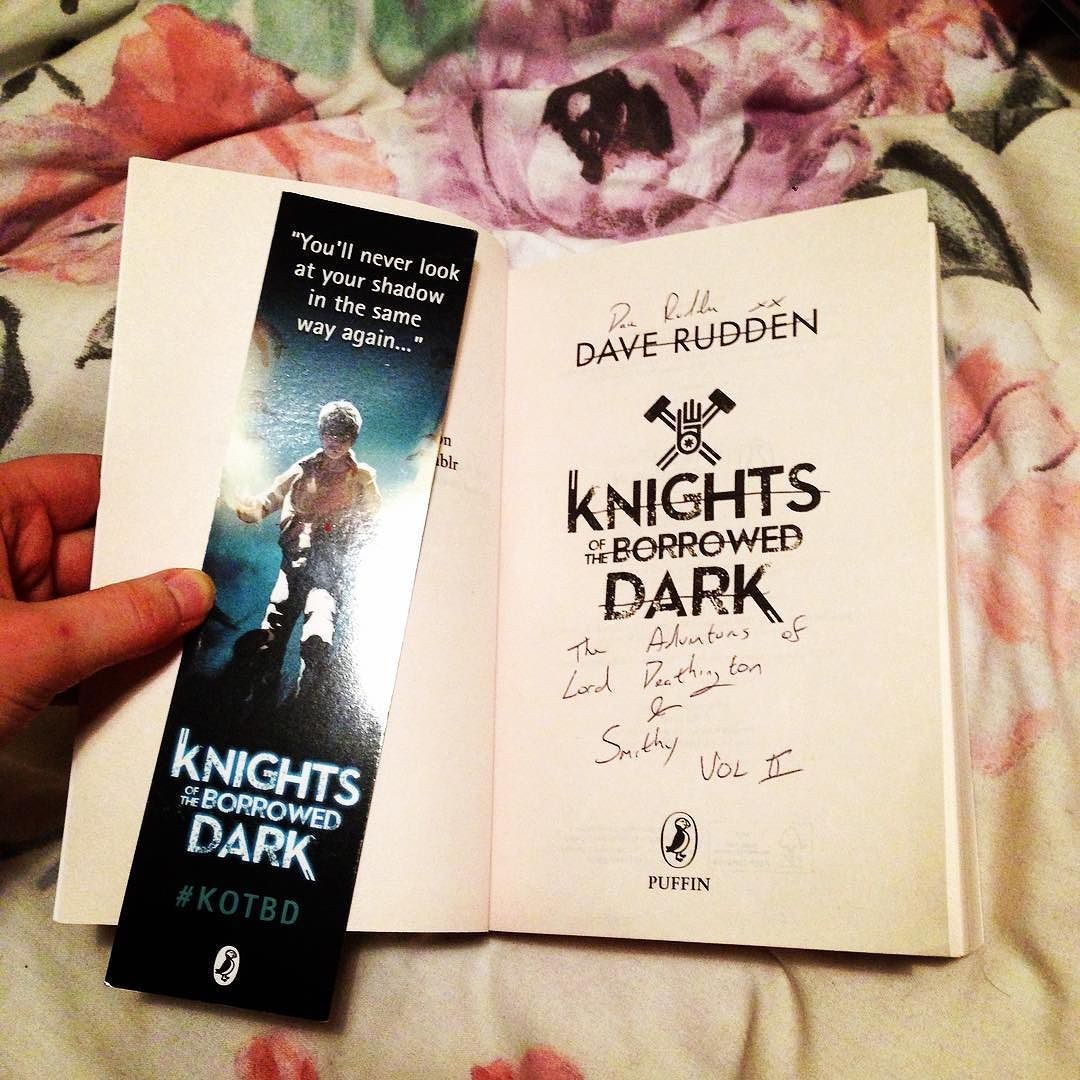
"I used to to think books arrived fully formed. I
didn’t know that it arrived in, like, 12 or 13 drafts, as opposed to just one word in front of the other." And his advice to other writers in the drafting black hole? Just stop polishing that first chapter and write the rest already. "Your book doesn’t have to be perfect first try. It's a huge project, it’s a symphony of scenes and characters and one line can change the entire book. Don’t try and get it all right at first, it’s too much. Get it down on the page, as messy as it needs to be. Get it down, get to the last line. It can be so difficult transferring this weird melange of ideas in your head on to paper, but you can’t really look at it until then, so just get it down."
9. And never lose sight of what you love.
"There are 7 billion people in the world, and they're all unique, intricate machines built of their experiences."
When it comes down to it, Rudden is all about glorious geekdom and the incredible stories that come out of the love of a world, whether it's someone else's or your own. "In a way, I think all writing is fan fiction," he says, after a lengthy and enthusiastic tangent into a Martha Kent fan fiction he's really into at the moment. "You see things you love, you see things you want to engage with, and you want to try your own take at them. You want to say something about them.
"There are really only seven types of story, but there are 7 billion people in the world, and they're all unique, intricate machines built of their experiences." And aren't we all just out to tell our own version of those experiences? Whether they're versions of real-life events, or our favourite published works?
"My personal heroes are the fan fiction writers who post every week, and do it anonymously," says Rudden. "They’re not looking to make money, not looking to get fame. They just love the fandom."
So will he be reading fan versions of his own work as the book blows up around the world?
"I'm dying to see it," he says giddily.
"I know different writers have very different thoughts on fan fiction, especially of their own work ... but I personally would feel like it was a gigantic compliment. If people care enough about my work to write about it, that’s lovely."
